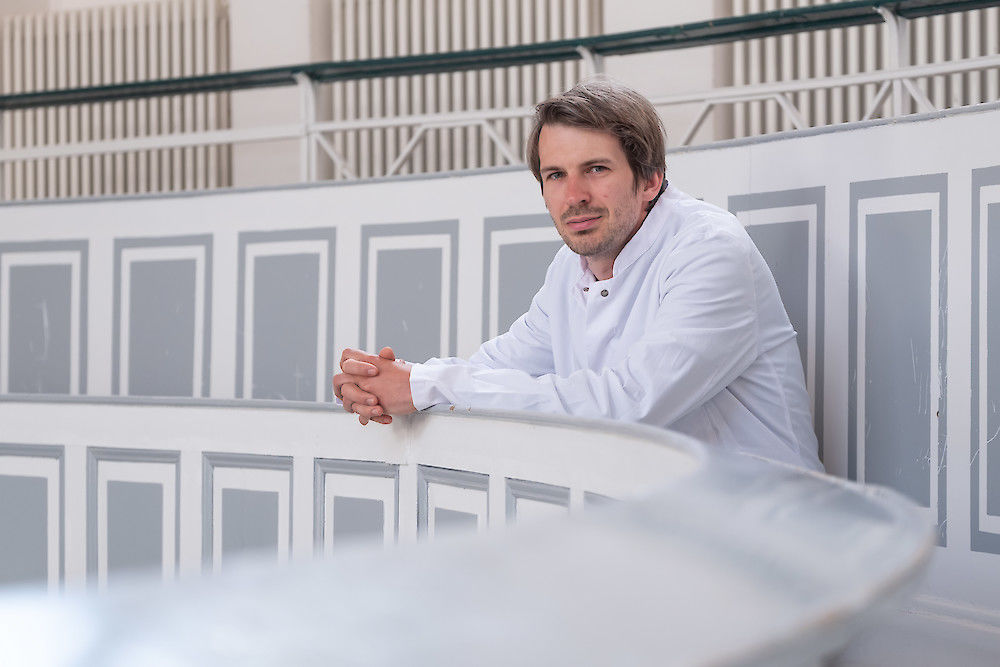Uncovering the secrets of fat cells

More than half of the people in Western Europe are overweight. And about twenty per cent of them suffer from obesity. These figures are dramatic. “The International World Health Organization (WHO) is now considering reducing statistical life expectancy in Western countries,” says Professor Martin Gericke from the Institute of Anatomy and Cell Biology.
The 34-year-old physician from Leipzig came to MLU in 2018, where he has held a professorship in molecular anatomy ever since. After receiving his PhD, he began focusing his attention on fat cells. One aspect he is investigating is why not all obese people suffer from typical diseases of affluence associated with obesity, such as high blood pressure and diabetes.
“Basically,” says Gericke, “there are also very overweight people who are surprisingly healthy.” The assumption: the immune system plays an important role in determining who gets sick and who doesn't. There are also indications that inflammation in the fatty tissue leads to disease. “What is particularly tricky is that this inflammation can be detected in the body, but the patients do not feel it,” explains Gericke.
For this reason, he and his research group are looking for ways to positively influence this inflammatory reaction. Those who are unable to permanently reduce their weight on their own, and thus improve their physical condition, are now primarily turning to surgical methods such as stomach reduction surgery, a procedure that is effective but also involves risks.
Gericke's research is based on studies involving patient data. However, experimental work also plays an important role. After Gericke's move to Halle, the newly equipped laboratory is still under construction.
During his time as a research assistant at the University of Leipzig, he developed a method for examining living fat cells under a microscope. It enables scientists to observe the interaction between fat cells and cells of the immune system. This complex procedure is called live imaging. Though it still poses a challenge, it can be used to observe the entire process under the microscope using living cells. “We are slowly beginning to understand how the immune system can recognize and remove dying cells,” explains Gericke. Around ten percent of fat cells are broken down in the body every year. It is still largely unclear how this works.
One of Gericke's research goals is to develop a drug that suppresses the inflammatory reaction in fatty tissue. “This makes our work particularly interesting to the pharmaceutical industry.”
Professor Martin Gericke
Institute of Anatomy and Cell Biology
Telephone: +49 345 55-71708
email: martin.gericke@medizin.uni-halle.de
Further articles
Food of the future
Nutrition research at MLU is broad-based. It goes far beyond the boundaries of traditional disciplines, because its subject matter is as extensive as it is complex. The scientists are working on counteracting the progression of diseases through targeted changes in nutrition. Read more
Peas with a twist
At first glance, legumes are not necessarily what one would call hipster food. Their image fluctuates between cosy home-cooked meals and flatulence – without merit, counters Emilie Wegner. A graduate of MLU, the nutritionist has now founded her own company called “Hülsenreich”. She will begin producing tasty snacks from this underestimated local produce. Her project has already won a award. Read more
